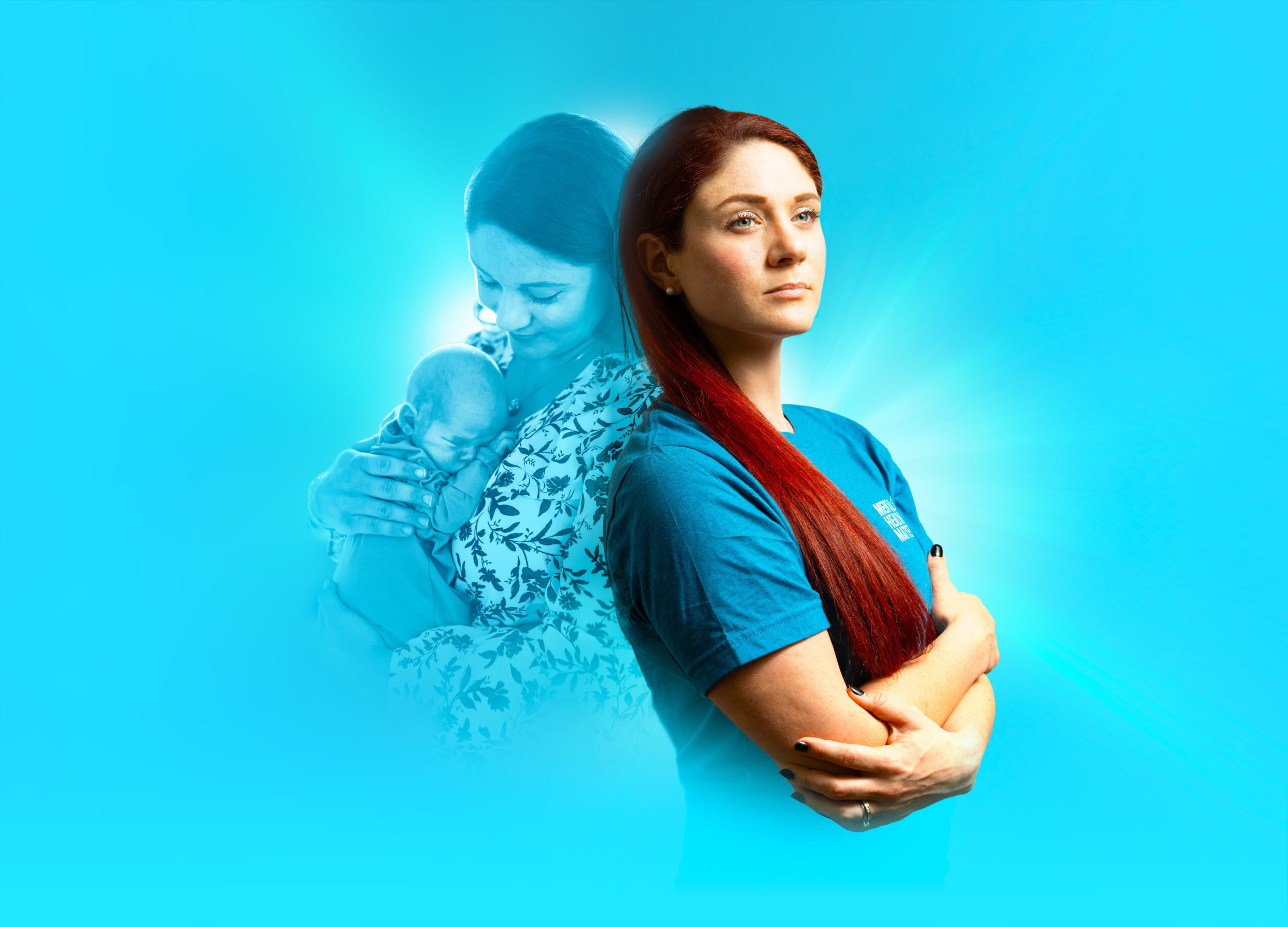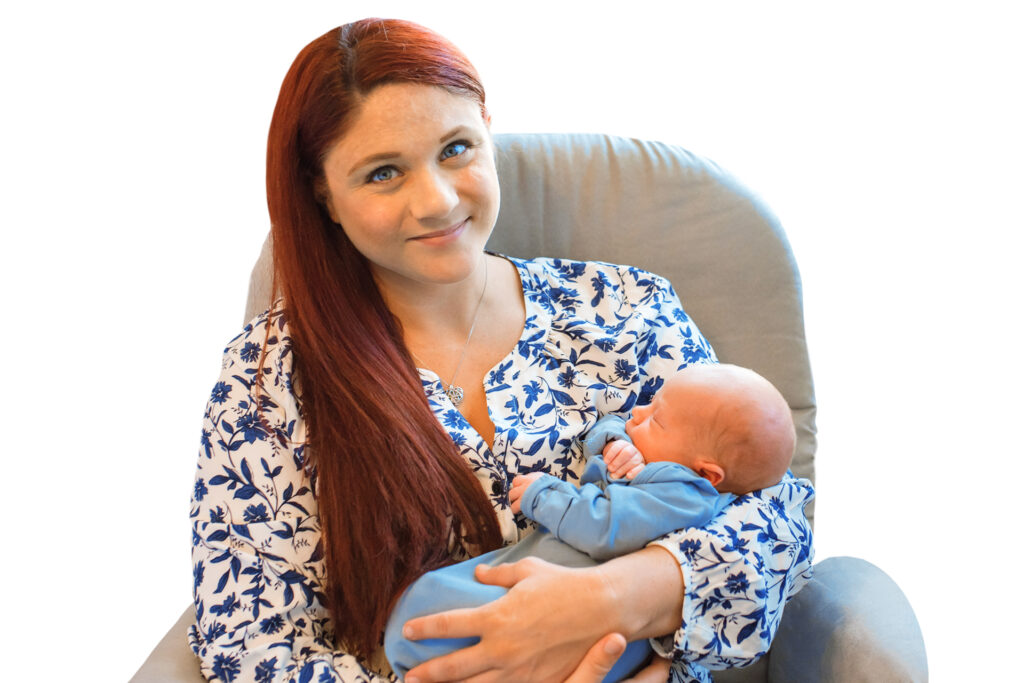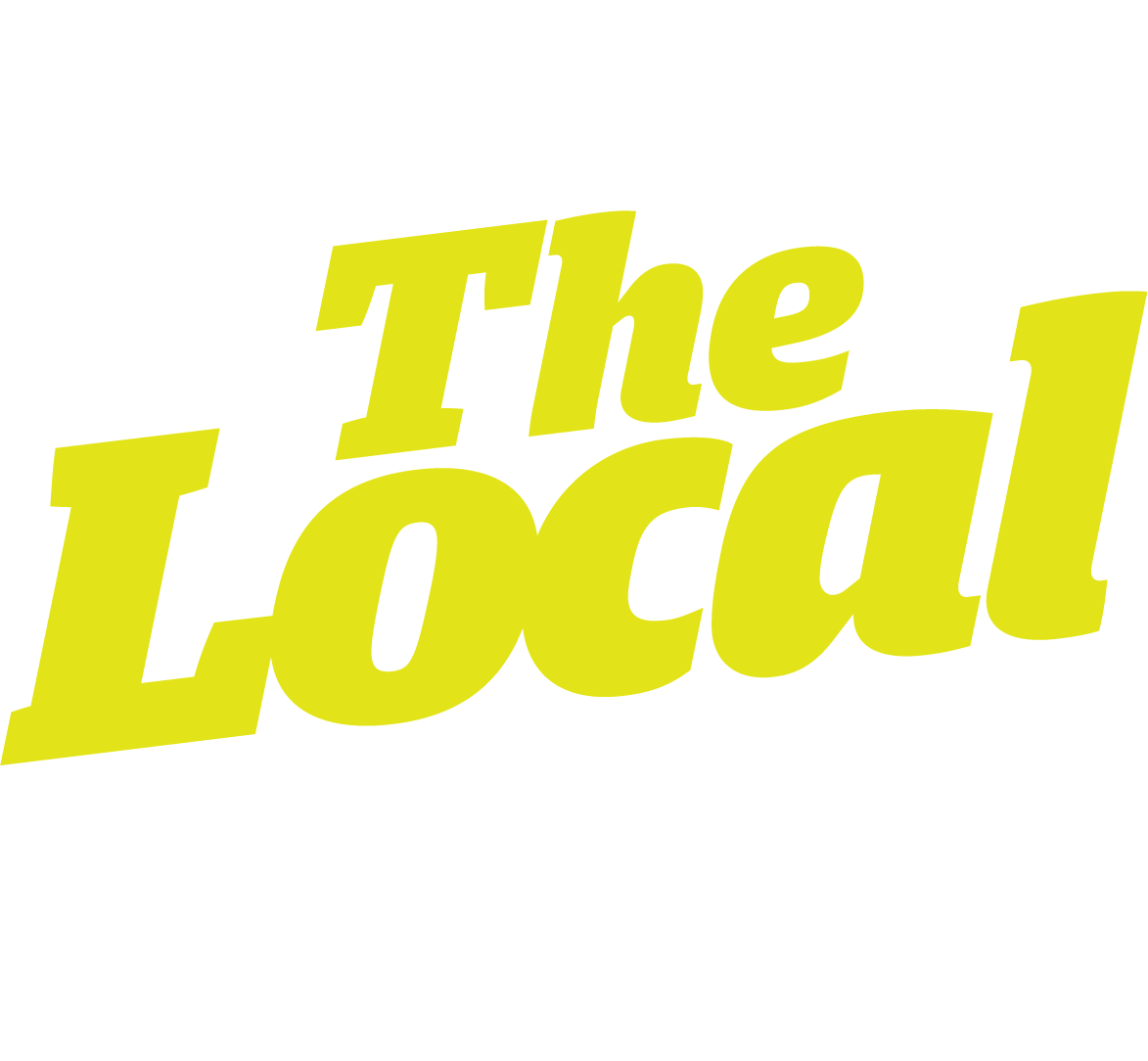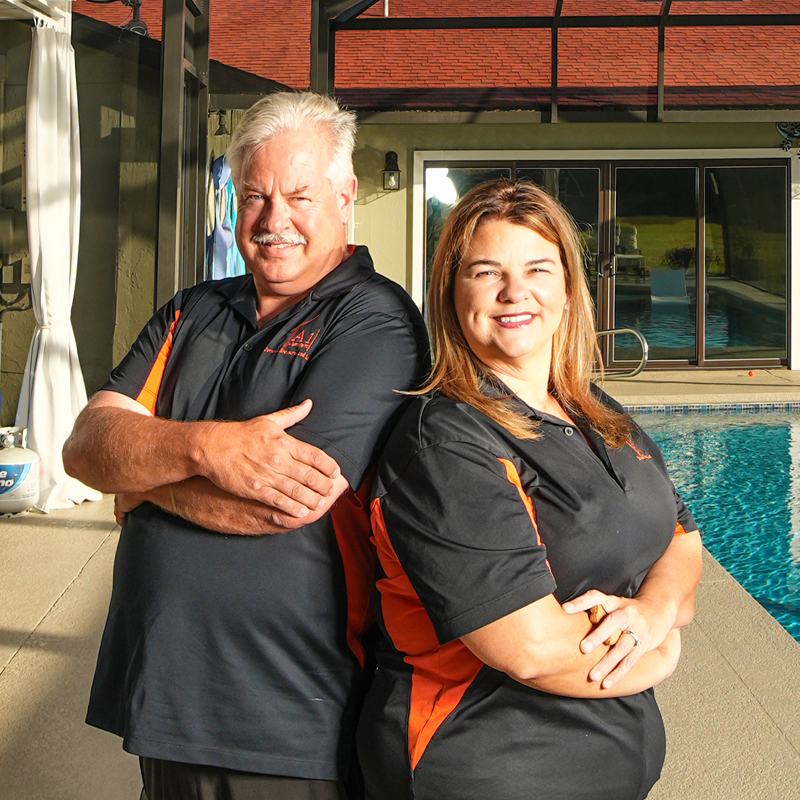Oh, Well!
Blue
Postpartum depression is never your fault — and it is treatable. Ashley Rogers shares her message of hope and healing.
- Heather Anne Lee
- Fred Lopez

Many people would assume that having a baby is the happiest time in a woman’s life, but for some, it may be the darkest.
Ashley Rogers knows that all too well. The vivacious young mom, community activist, and fitness enthusiast wanted to die.
“Every day I thought about suicide. I knew how it would happen, where it would happen, even when it would happen,” Ashley shares. “And yet, at the same time, what right did I have to feel this way? I had just had a beautiful healthy baby boy with no complications other than an uneventful c-section. I had a loving,supporting family helping to take care of me and the baby. I had two intelligent, kind, and strong older children. My husband adored me and was in awe of everything I was able to accomplish. And yet it wasn’t enough.
“Every waking hour was filled with crippling and obsessive anxiety. I thought for sure my baby was going to die from SIDS. My other kids were going to die because I couldn’t take care of them. My parents were going to be tragically killed in a car crash. My husband was going to leave me. My brain was a constant loop of feeling worthless, and fat, and ugly, and a terrible mother, and that the entire world was better off without me.”
Ashley leans forward in the chair, her earnest blue-green eyes welling at the memory.“It’s only because I have experienced major depression during my life, and have been diagnosed as bipolar, that I knew things weren’t right. That these thoughts weren’t normal.
“If you have been through this before, you know in hindsight that this is all a lie being whispered constantly in your ear by postpartum depression. But when you are in the thick of it, it is very, very real. I can’t stress that enough. Postpartum depression is very real, and it’s a huge problem that we aren’t addressing. And by ‘we,’ I mean we as a community; as mental health professionals; as doctors and OBGYNs and clinicians; as women, as friends, as moms. That’s why I’m choosing to be so vocal about it. If sharing my story helps even one mom, if it saves even one life, then it’s worth it.”
The reality is that parents of new babies often have a lot of questions. Am I doing this right? What have I gotten myself into? How many diapers can one baby really use in a day? Is it normal to be this tired? Is it OK to feel sad even though I have a beautiful, healthy new baby? Am I enough? Am I even capable of doing this?
For up to 80% of moms, these questions are part of the “baby blues” – mild sadness, crying, or anxiety that usually wears off a week or two after delivery. But for up to 15% of new moms, these emotions spiral into postpartum depression (PPD), a persistent, serious condition characterized by feelings of sadness, worthlessness, and anxiety. In severe cases, moms have violent thoughts toward their babies or themselves.
Ashley experienced both postpartum depression and postpartum psychosis. “With my third baby, I recognized the signs earlier, so I was able to get help faster. But with my second child … that was a completely different story. You read these stories about moms who harm or even kill their babies and don’t remember how or why. It’s awful, but having gone through postpartum psychosis myself, I empathize with those women. It’s not right, but I get it. It really is a complete and total mental breakdown, completely driven by hormones and/or other mental health issues.
Being bipolar and having experienced postpartum psychosis, Ashley was more aware of the risks the third time around. Still, being aware didn’t stop PPD from happening. “I was just able to recognize the symptoms earlier, and I knew I needed to reach out for help.”
What were those symptoms, exactly? “At first it was constant anxiety, worry, and a state of despair and hopelessness. I was crying all the time, but I didn’t know why.”
She continues: “I tried all the traditional things I already knew how to do: I exercised, made plans with friends, and tried to get enough sleep. But none of it worked. Slowly, I stopped showering. I stopped answering the phone. I kept the shades drawn all day and night. That’s when I started thinking about suicide. I’d visualize ways to hurt myself and end my life, mapping out in my head exactly how it would happen. I never acted on those thoughts, but I felt insane. I was yelling at my family, crying, and at one point I started to pound my head against the wall. That was the day I called my psychiatrist, my therapist, and my fitness coach to help me put the pieces back together.
“First, I got back on my medications from before pregnancy. And let me tell you, there is nothing wrong with some store-bought serotonin! Medication has saved my life. Period. We, as a society, need to remove the stigma around anti-depressants and medication. I’ll be on medication for my entire life and that’s OK because it’s keeping me healthy and sane. It literally gave me my life back.”
Ashley also sought out a Women’s Specialist Therapist to talk through the suicidal ideation, and she started with a strength and nutrition coach. “What moms don’t realize is that they need to take care of themselves first. You can’t take care of a baby or a family if you’re not healthy. So I put the work into myself and got stronger and healed my relationship with food. I lost the 50 pounds that I had gained during my Covid pregnancy. And after about a year of hard work on myself, I finally started feeling like myself again.”
Indeed, if there is one thing Ashley wants to drive home, it is that recovering from postpartum depression takes time. There is no overnight fix. “But when you walk through it and come out the other side, you appreciate what you’ve done. You know the saying that you can’t pour from an empty cup? Well, postpartum emptied my cup. I couldn’t give to my husband and my kids because there was nothing left to give. I needed to focus on myself first. Therapy and exercise and medication refilled my cup, and only then did I realize it was not the same cup as before. There were cracks and scars where it had been molded back together, but it was beautiful in its own way. And a hell of a lot stronger! I’m so much stronger now than I ever was during my last two pregnancies, and I’m a better mom because of it. Which is why I want to talk about it. Talking about postpartum depression normalizes what is typically a lonely, isolating experience. It gives other women hope. And hopefully, it encourages other moms to reach out for help if things don’t feel normal.”
Ashley has since turned her mess in her message. In 2022 she launched Level Up Strength and Nutrition, helping moms prioritize their health without giving up family time. And she remains vocal about postpartum depression on social media, offering both a lifeline and a message of hope for other moms in postpartum crisis.
“PPD doesn’t always mean you hate your life or don’t want your baby. Sometimes it looks like screaming uncontrollably and then sinking into a sobbing heap on the ground, or throwing your phone at the wall because you’re so angry at life, without understanding why. PPD and other postpartum mood disorders look different for every person, but one thing is true: it won’t last forever. That’s the ultimate message: It won’t last forever, and there is hope. We just need to be more supportive and more compassionate with each other, and please ask for help. There’s no shame in asking for help.”

Wellness Counts
12.8%
of U.S. moms reported experiencing postpartum depression in 2018.
SOURCE: NIH.gov
66%
of PPD cases go undiagnosed. It is the most under-diagnosed obstetrical complication in the United States.
SOURCE: Serenityhw.com
54%
of women experiencing PPD have been diagnosed with depression previously, either earlier in pregnancy or earlier in their lifetime.
SOURCE: Serenityhw.com
50%
of moms who have already experienced PPD have a chance of experiencing it again in future pregnancies.
SOURCE: Serenityhw.com
47%
of young moms (19 or younger) are more likely to experience postpartum depression than moms older than 25.
SOURCE: NIH.gov
It's Ok Not to Feel Ok
Yes, becoming a mother can be one of the greatest joys of life. But that doesn’t mean it’s easy. No one’s a perfect parent. And it’s healthy to acknowledge that parenting is also one of life’s toughest jobs.
Here’s how to recognize the symptoms of postpartum depression or anxiety:
Can you sleep when the baby is sleeping? And are you having any scary thoughts?
These are the two questions most professionals ask new moms who may or may not be experiencing postpartum depression. Other major symptoms of postpartum depression, according to the Centers for Disease Control and Prevention, include:
• Feeling sad, hopeless, overwhelmed, guilty, or angry
• Crying often
• Feeling numb or disconnected from your baby, not wanting to be around your baby, or being worried you will hurt your baby
• Feeling incapable of or incompetent at caring for your baby, including feeling guilty about not being “good enough”
• Unexplained physical symptoms, such as headaches, nausea, and stomachaches
• Being unable to find pleasure in any activities or withdrawing from others
• Having no energy and having trouble focusing
• Experiencing difficulties with sleeping, including being unable to fall asleep
• Lack of self-care, i.e. not showering or dressing for days, lack of appetite, general disinterest in daily life






